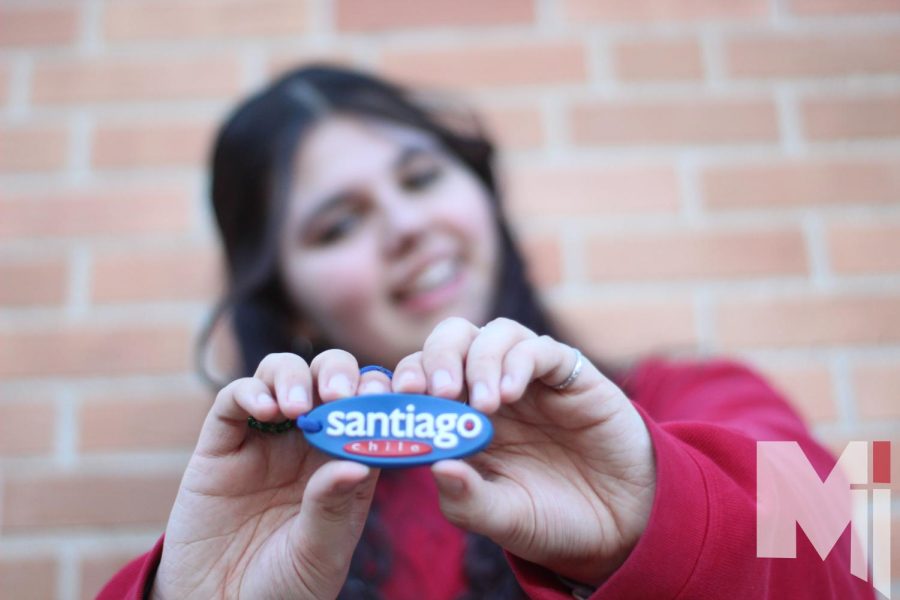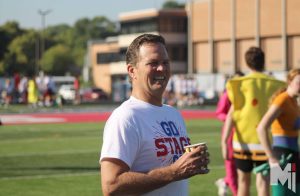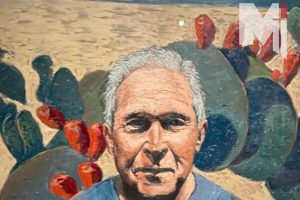Citizen of the World: Dual citizenship gives student identity opportunity
Junior Bianca Bair plans on using her newly obtained citizenship and passport to connect with family and her culture. “I look forward to learning more about my current identity and expanding upon my lineage,” Bair said.
March 9, 2023
The fresh smell of her abuelita’s cooking fills the room, surrounding junior Bianca Bair’s household with Chilean culture, creating an identity outside of the U.S. and leading her family to spend over two years obtaining dual citizenship to set up roots in another country.
In June of 2022, Bair took a three-day trip to Chicago to the nearest Chilean consulate and formally attended an appointment that determined the possibility of dual citizenship. According to Bair, the building had intense security, and she went up over 20 stories in the elevator to give her fingerprints, signatures and fill out more paperwork.
Born in Costa Rica and Chile, Bair’s grandparents immigrated to the U.S., where her mother was born. At 7, Bair’s mother moved to Chile and remained there until she was 18.
“She forgot all the English she had known from when she was a kid,” Bair said. “Her identity was completely Spanish. My mom even went to college in Costa Rica. She had a friend, though, whose father was a professor at KU and that’s how my mom came back up here, which eventually led my abuelita to move back with my mom to San Francisco, California.”
On a seven-hour car ride to Chicago, Bair traveled with her mother, father and brother to obtain their new citizenship status. Bair’s father was the only member of the family unable to become a Chilean citizen.
“For my family, we wanted the trip to be fun,” Bair said. “Of course, we had business to attend to, but we also tried to make it enjoyable as well. We traveled around and did some sight-seeing, but we set aside an entire day for the citizenship process.”
Although Bair’s abuelita immigrated back to the U.S., her abuelo and uncle remain living in Chile today, providing an opportunity for Bair’s family to connect with their roots at any time to take refuge.
“I’m always safe to go to Chile,” Bair said. “I have an identity there and I could start a life there so if things like COVID-19, happen in the U.S., I could get out of here. There is somewhere safe where I can go and don’t have to worry about a visa. I also have family there, and why wouldn’t I want to set up roots where my family is?”
With her new citizenship, Bair hopes to travel to Chile since she is the only member out of her immediate family yet to do so. With her brother Nico Bair currently in Chile, she plans on visiting him soon.
“Nico is pursuing soccer in Chile, which I’m proud of him, but it’s definitely has been hard,” Bair said. “My Chilean cousin Sofia stayed with us for three months since we didn’t know how long Nico was going to be down there. It was fun having a different family member around, and she got to learn more English.”
As her mom sang her a Chilean nursery rhyme, the word “biberon,” was Bair’s first word, which means bottle, although she is not fluent in Spanish,
“Growing up in a Spanish household makes me more fluent than the average person,” Bair said. “My abuelita knows I don’t speak Spanish a lot but she only speaks Spanish to me, so it’s nice that I can connect with her. I see Spanish a lot in my life, and it’s beyond school.”







